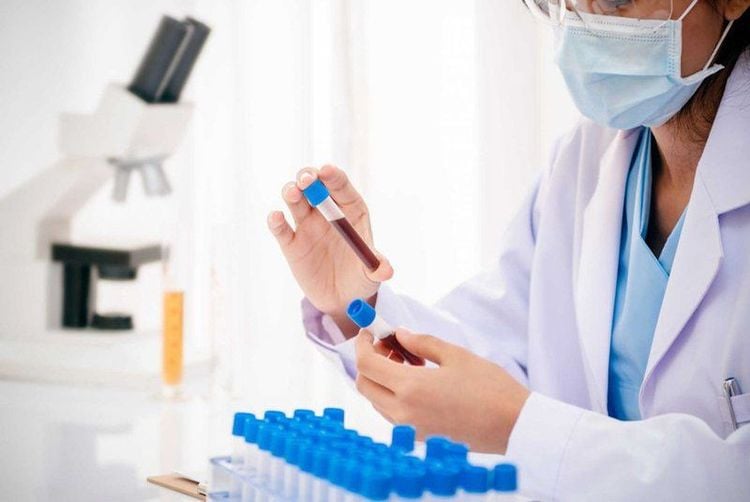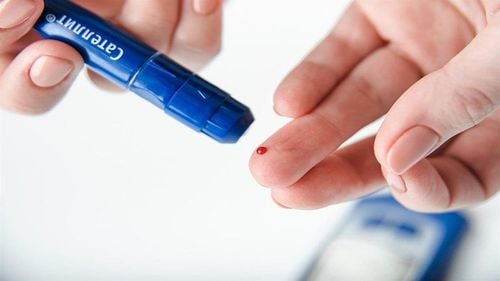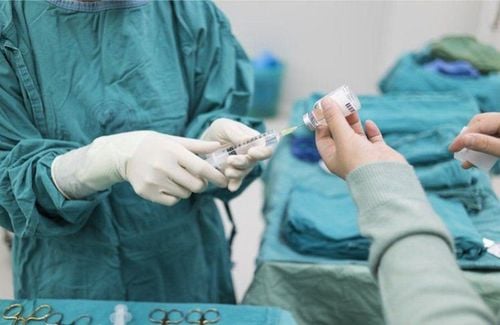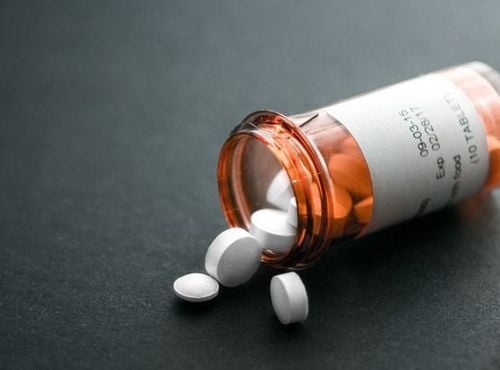This is an automatically translated article.
The article was professionally consulted with Master, Doctor Pham Van Hung - Department of Medical Examination & Internal Medicine - Vinmec Da Nang International General Hospital.1. Overview of acute coronary syndromes
Acute coronary syndrome is a collection of clinical symptoms caused by acute myocardial ischemia. Acute coronary syndromes include:Acute myocardial infarction with ST elevation on electrocardiogram (ECG). Non-ST-segment elevation myocardial infarction on electrocardiogram. Unstable angina. Common causes that can lead to acute coronary syndrome include:
Atherosclerotic plaque rupture with acute embolism. Mechanical blockage. Inflammation. Coronary artery spasm.
2. Biochemical tests in acute coronary syndromes
Biochemical tests are based on determining the content of substances present in cardiac muscle cells that are released when necrosis due to ischemia. Biochemical tests should be performed as soon as possible and repeated periodically to monitor progress and extent of necrosis.In acute coronary syndromes, ECG changes appear earlier than enzymes, but there are sites that are not detected by ECG. Therefore, the role of biochemical tests is irreplaceable. Biochemical tests include:
2.1. AST enzyme tests:
AST biochemical test has normal value: 10-30 U/L. In myocardial infarction may increase to 300-500 U/L. AST increases starting 10 h after myocardial infarction, peaks after 36 h, and returns to normal after 72 h. Therefore, AST is of value in the diagnosis of late myocardial infarction and recurrent myocardial infarction. AST is also present in the liver and skeletal muscle, so the sensitivity and specificity are not high. LDH:
LDH has 5 isozymes numbered from 1 to 5, in which LDH1 is the cardiac isozyme. Normal value: 230-460 U/L. LDH begins to increase 20 hours after infarction, peaks after 72 hours, and returns to normal after more than 1 week. LDH is often used to diagnose late myocardial infarction, or to make a retrospective diagnosis and to monitor recovery. CK-MB:
CK-MB is one of three isozymes of CK (creatine kinase), which is abundant in cardiac muscle cells. Normal value: <25 U/L. CK-MB increased as early as 3 hours after infarct onset and returned to normal after 2-3 days. CK-MB is a useful biochemical test in the diagnosis of recurrent myocardial infarction and its extension. HBDH:
HBDH is the most abundant enzyme in the heart muscle. Normal value: 80-220 U/L. HBDH remains elevated for 3 weeks after an angina attack, so it is predictive. HBDH/LDH ratio > 0.8 when myocardial damage is present.

Myoglobin is a protein found in skeletal muscle cells that is released into the bloodstream very soon after myocardial injury. Myoglobin test has a normal value: <70-110 μg/L. Myoglobin begins to increase 2 to 4 hours after infarction. Therefore, this is the earliest and most sensitive marker in the early hours of acute coronary syndrome. Troponin I:
Only found in the human heart muscle, very sensitive to even the smallest myocardial damage. Normal value: <0.01 ng/mL. Troponin I begins to increase from 3 to 6 hours after infarction, peaks from 2 to 20 hours and returns to normal after 5-10 days. Elevated troponin I levels are associated with an increased risk of death in people with acute coronary syndromes. Troponin T:
Troponin T in the myocardium has a cardiac-specific first-order amino acid sequence. Normal value: <0.1 ng/mL Troponin T begins to increase 3 to 4 hours after infarction, peaks at 10 to 24 hours, and returns to normal after 10-14 days. Troponin T is also elevated in acute ischemic heart disease and may be falsely positive in patients with chronic kidney disease. In summary, acute coronary syndrome can cause serious complications, even death. As soon as they notice signs of the disease such as: chest pain, bloating, shortness of breath, sudden sweating, etc., the patient needs to go to a medical facility for examination, diagnosis and treatment monitoring.
Currently, Cardiovascular Center - Vinmec International General Hospital is one of the leading centers in the country for examination, diagnosis, screening and treatment of cardiovascular diseases. Vinmec not only has the convergence of a team of experienced and reputable leading experts in the field of surgical treatment, internal medicine, interventional cardiac catheterization, but also has a system of modern equipment, on par with The most prestigious hospitals in the world such as: MRI 3 Tesla (Siemens), CT 640 (Toshiba), high-end endoscopy equipment EVIS EXERA III (Olympus Japan), high anesthesia system Avace level, Hybrid operating room according to international standards... Especially, with the space designed according to 5-star hotel standards, Vinmec ensures to bring patients the most comfort, friendliness and peace of mind. .
Please dial HOTLINE for more information or register for an appointment HERE. Download MyVinmec app to make appointments faster and to manage your bookings easily.














